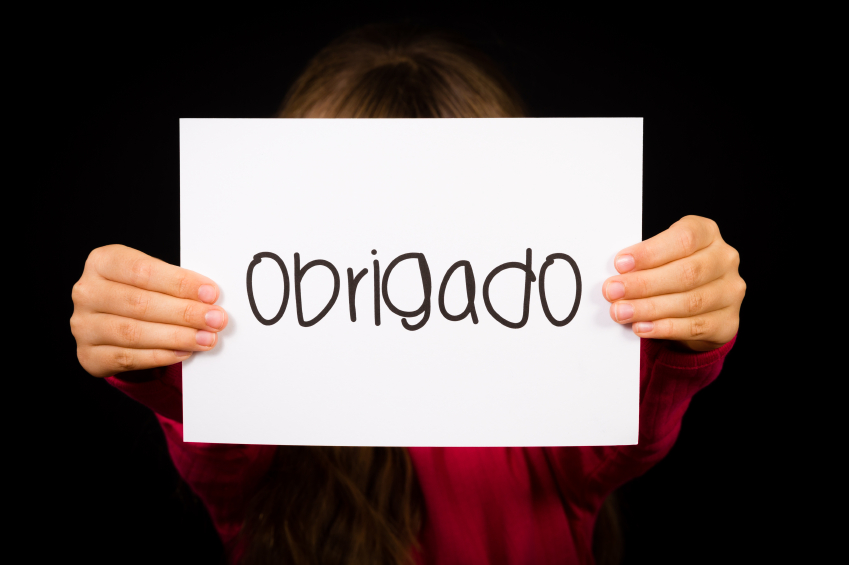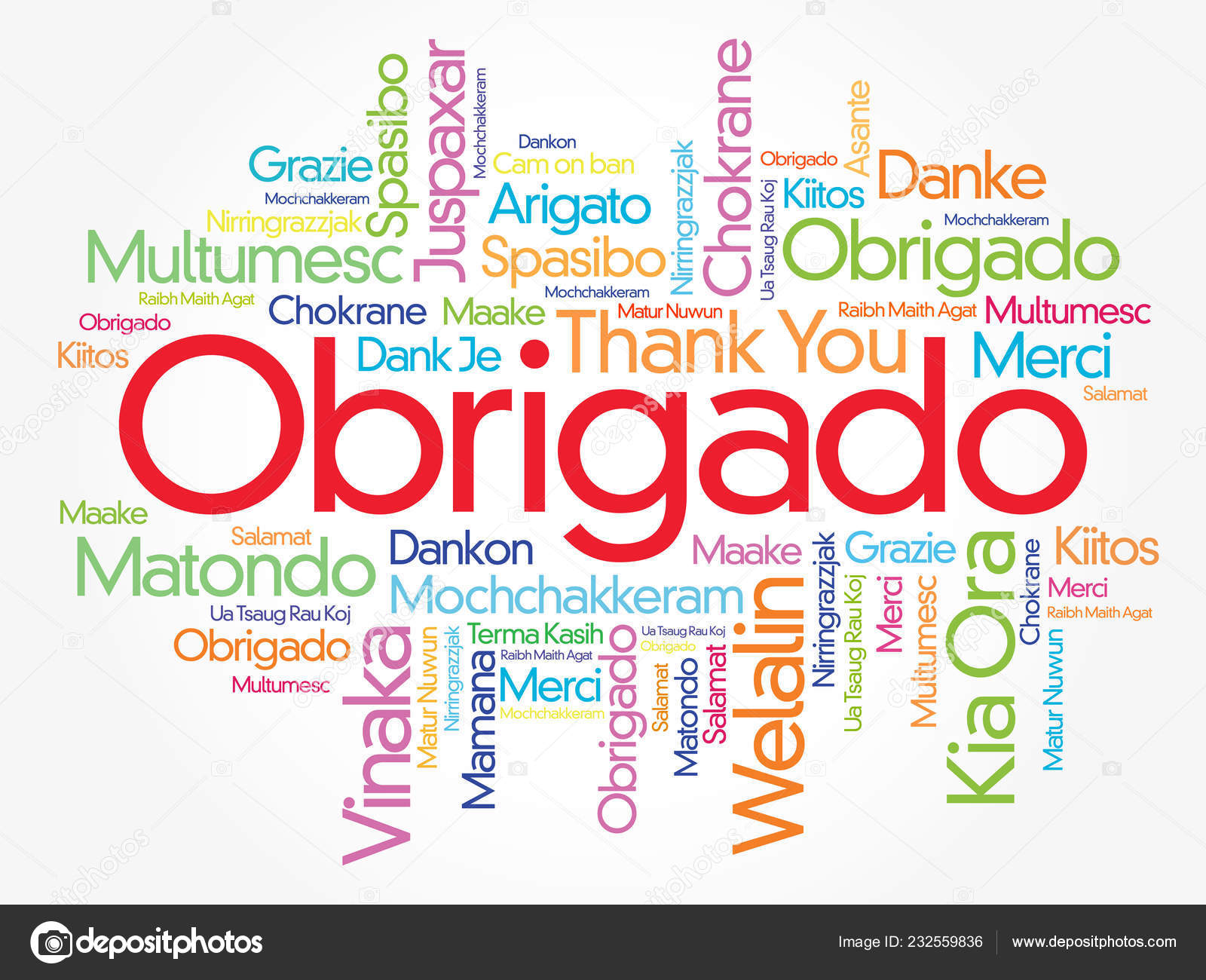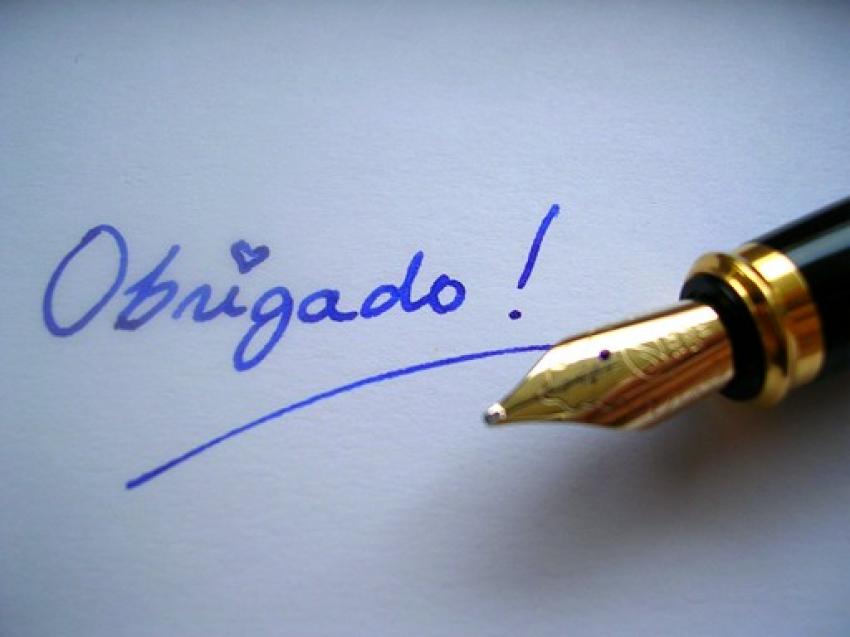
Obrigado Thank You in Portuguese Inscription Design. Modern Handwritten Calligraphy. Isolated on
According to Cloze Master, the Portuguese word obrigado means "thank you.". In Portuguese, this word changes depending on who is saying it. If someone is male, they should say "obrigado.". If one is female, they should say "obrigada.". This is because one is referring to oneself, i.e. "I am obligated.". Therefore, that person.

Moda no Sapatinho dia internacional do obrigado
When " obrigado " in an adjective, it means "obligated" or "forced", and thus has four variants. And they are: obrigado (masculine singular) / obrigada (feminine singular) / Obrigado (masculine plural) / obrigadas (feminine plural). This happens because it doesn't relate to who is saying it but it relates to who we're talking.

Frases de obrigado. Adquira o costume de sempre agradecer!
English Translation of "OBRIGADO" | The official Collins Portuguese-English Dictionary online. Over 100,000 English translations of Portuguese words and phrases.

Obrigada Sticker for iOS & Android GIPHY
1) Obrigado/Obrigada. This is the most common way to say Thank You in Portuguese. Men should say 'Obrigado', with an 'O' at the end. Women should say 'Obrigada', with an 'A'. Example: - Oi Marina, eu trouxe um presente para você. (Hi Marina, I brought you a present.) - Obrigada. (Thank you.)

Muito obrigado o poder da gratidão
Mar 30, 2009. #14. Matthew Barros said: what about: 1) Água, eu bebo muito / actually it depends on what you mean. It's in correct if you mean 'lots of' but correct if you mean 'often'. 2) Água, eu bebo muita /. again it depends on what you mean. It's correct if you mean 'lots of' but in correct if you mean 'often'.

Obrigado Obrigado Em Português O Design Em Forma De Coração Vetor e Ilustração RoyaltyFree
Obrigado vs obrigada. rosrees01 May 12, 2019, 11:35am 1. I always understood that men will use obrigado and women obrigada, when they say "thank you". However, I frequently hear Portuguese women use obrigado. We live in Madeira and there are a few differences between the way some things are said here and the mainland.

Frases sobre obrigado pratique a gratidão!
Last updated: October 18, 2021 at 12:19 pm. The Portuguese word for "thank you" is "obrigado" or "obridgada" depending on whether a male or female is saying it. Females will use the feminine form, "obrigada," while males will use the masculine form "obrigado.". You do not change the gender of the word depending on who is.

Cartão Muito obrigado Elo7 Produtos Especiais
Learn more about our premium European Portuguese program called The Journey and start your free trial: https://portuguesewithcarla.com_____In t.

OBRIGADO
Obrigado e obrigada são as formas mais comuns e podem ser usadas em qualquer situação, sejam situações informais, como quando você precisa agradecer um amigo ou em situações formais, quando você vai agradecer o seu chefe no trabalho. Mas existem outras formas de agradecer. São jeitos mais formais e mais informais de dizer obrigado.

140 Ideias De OBRIGADA Em 2021 Mensagem De Obrigada Moda Instagram, Truth Ideas, Quotes White
Use obrigado/obrigada appropriately and only when necessary. Practice expressing gratitude in different ways to avoid overusing obrigado/obrigada. Context Matters. Using the correct form of obrigado or obrigada is essential in conveying the appropriate level of gratitude in Portuguese. The choice between the two words depends on the context in.

Frases sobre obrigado pratique a gratidão!
In this video, you will learn how native Brazilian people say thank you. But more than that: you will learn why some people say "obrigadO" and other people say "obrigadA". You will also learn formal and informal ways of saying thank you! In our blog, find an article about this content:

Frases sobre obrigado pratique a gratidão!
Obrigado is an adjective that can mean feeling indebted to someone, owing a favour or a gesture of kindness, it can also be synonymous with obliged, grateful or acknowledged. This adjective comes from the verb obrigar. Obrigado is also a past participle. Obrigar - to force or to oblige (verb) Obrigado - forced or obliged (past participle)

Obrigado Thank You Portuguese Word Cloud Background All Languages Multilingual — Stock Vector
OBRIGADO - translate into English with the Portuguese-English Dictionary - Cambridge Dictionary

obrigada Português & Cia
In this video, you will learn how native Brazilian people say "thank you". But more than that: you will learn why some people say "obrigadO" and other people.

Obrigado No Dia do Obrigado, relembramos a importância de agradecer (C/ÁUDIO)
Find out when we use "obrigado" and "obrigada"! European Portuguese Beginners Lessons. To read more about it please visit my blog post here: https://thesound.

12 melhores imagens sobre MUITO OBRIGADA no Pinterest Amigos, Placas de grupo e Gratidão
There are many ways to say "thank you" in Portuguese, that vary in formality and degree of gratitude: obrigado/a - thank you, informal. muito obrigado/a - thank you very much. obrigadinho/a - kindly thank you, friendly, you should smile when using this form, or be misinterpreted as being ironic/angry: thanks for nothing/thanks, but no thanks.